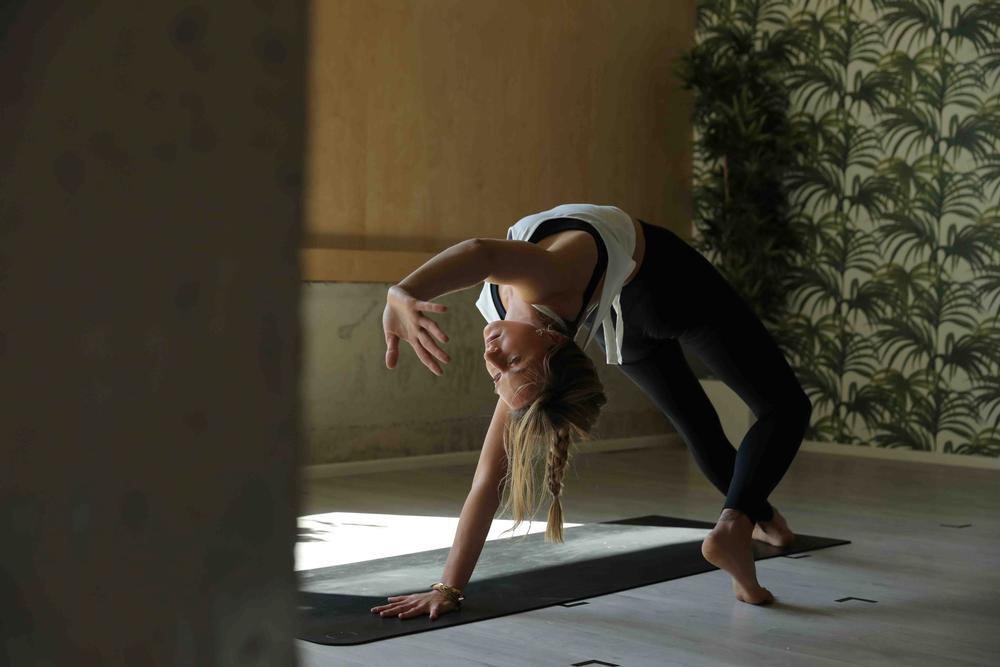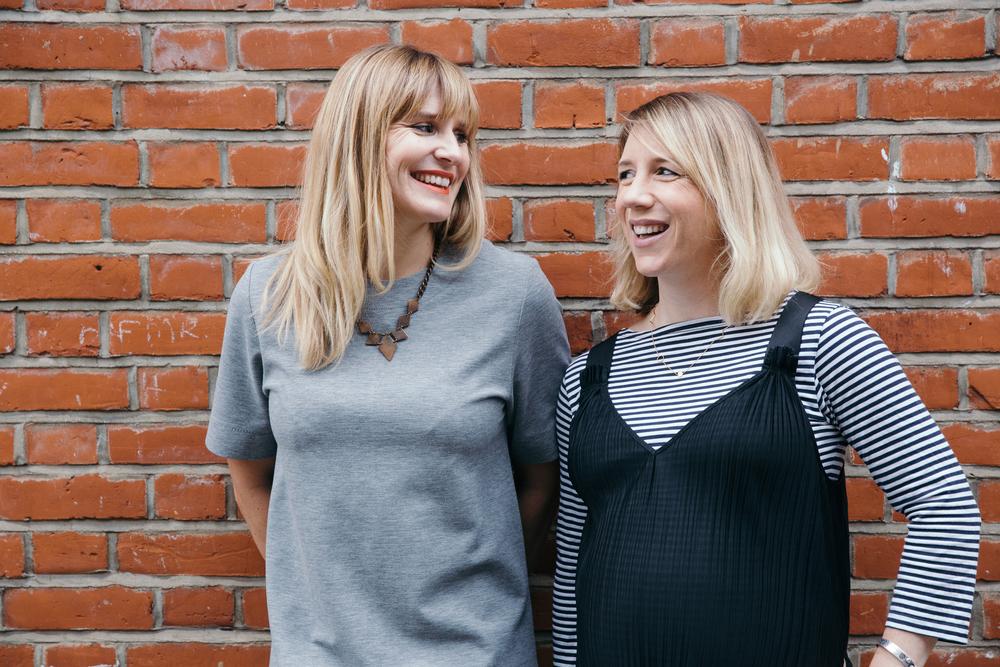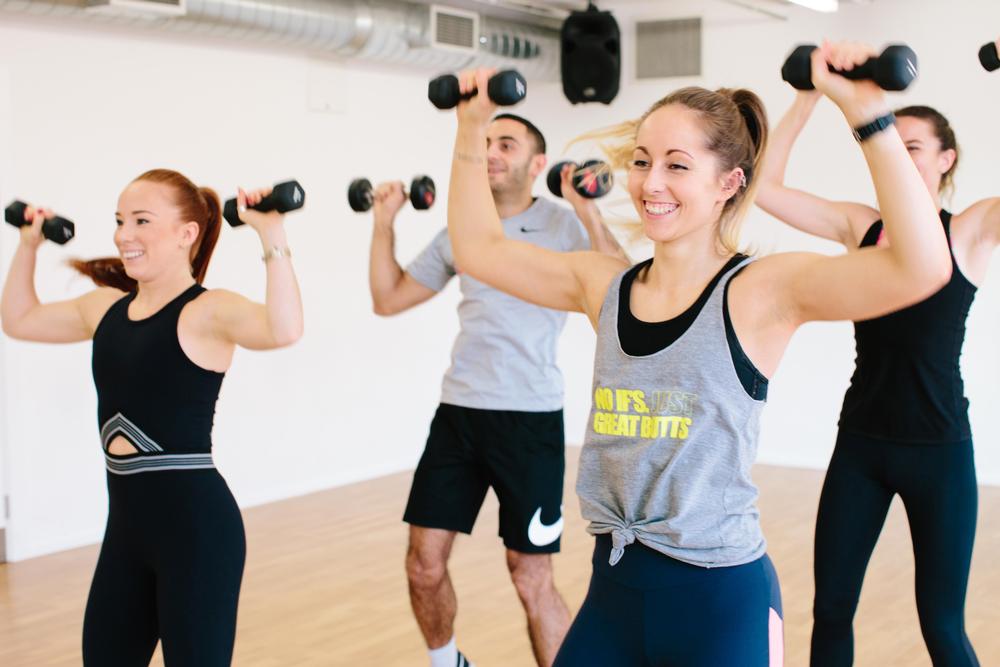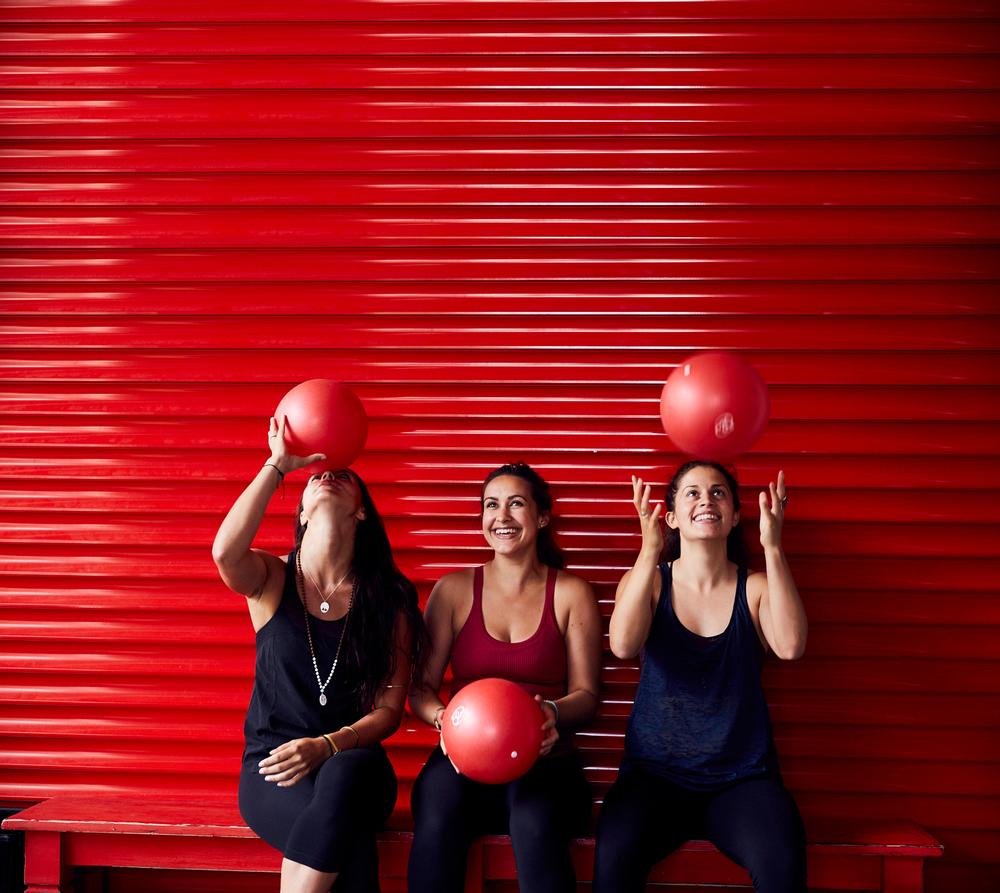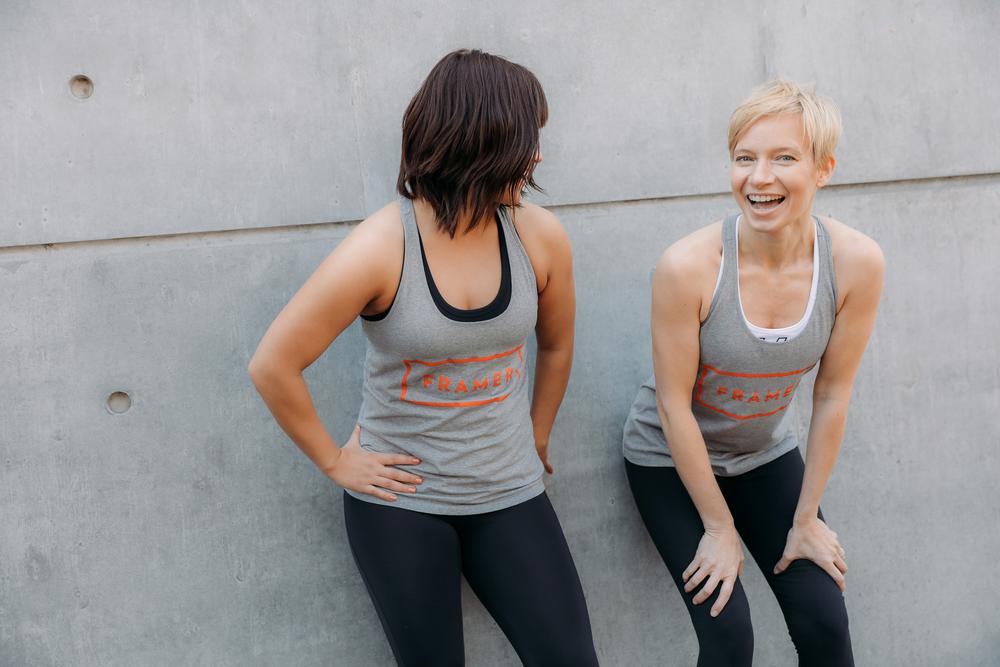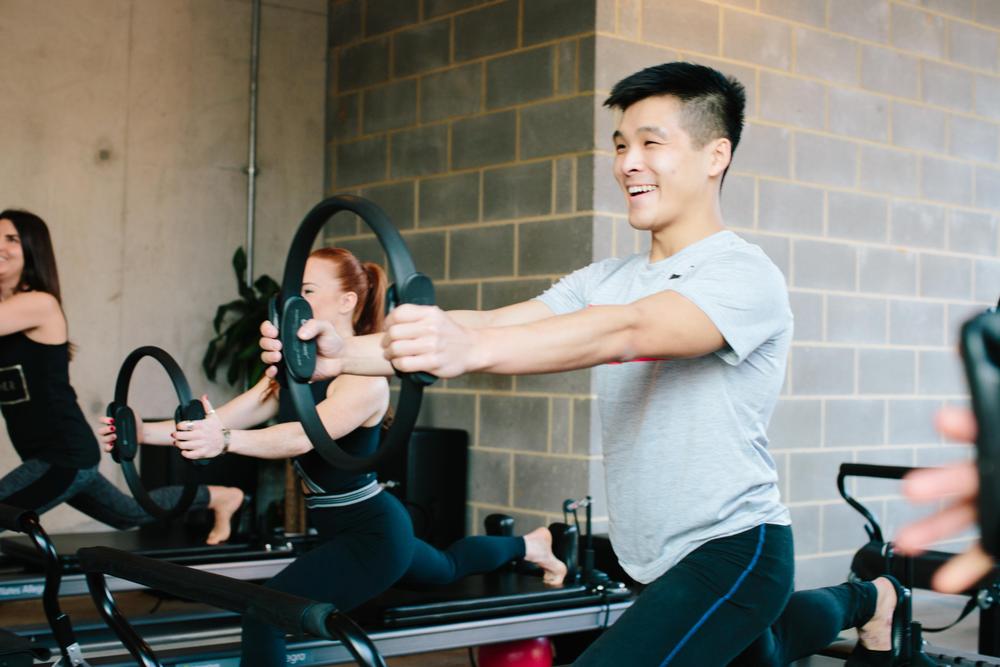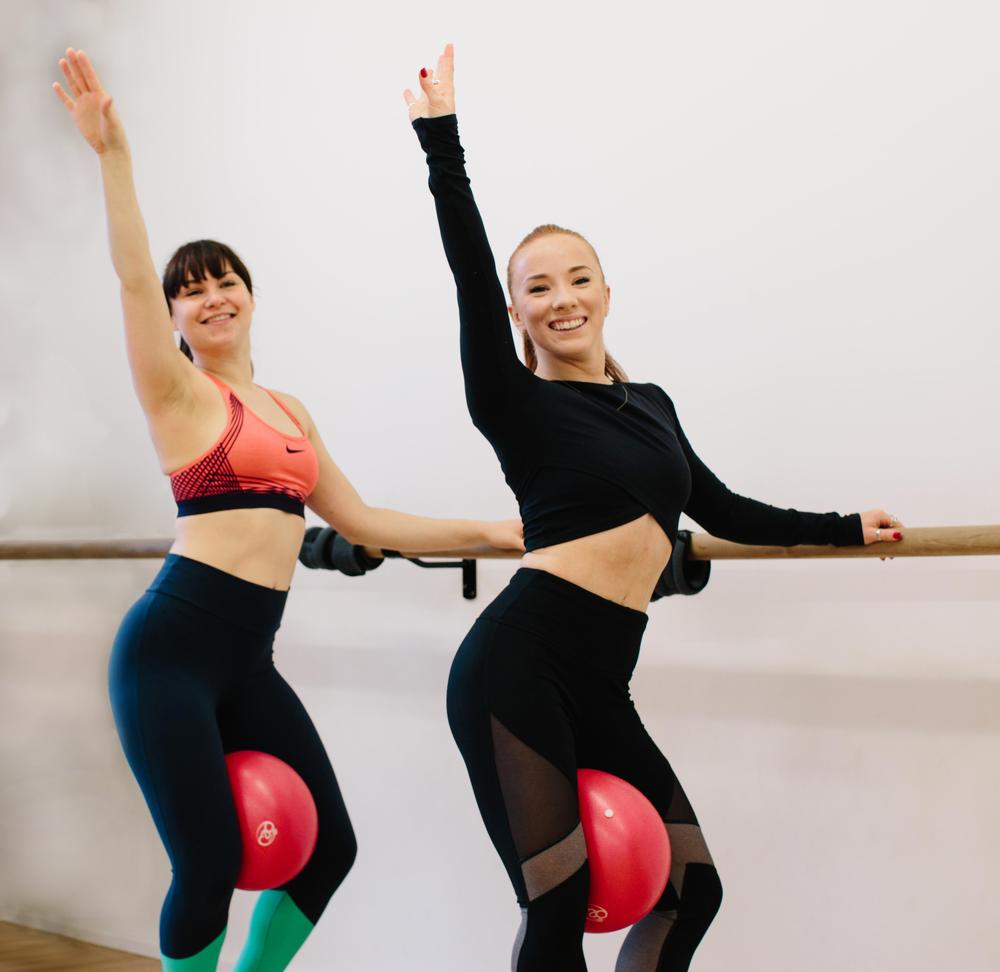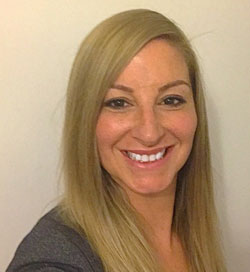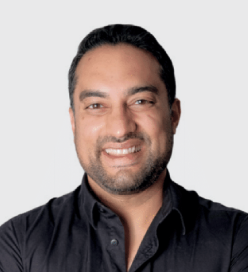The fitness sector needs to move away from shaming people into exercising,” says Pip Black, co-founder of Frame, one of the founding brands of London’s boutique scene. “From the very beginning, back in 2009, our concept has always been about making people feel good about themselves. We don’t have a ‘Six-Pack Abs’ class or anything like that. None of us need that extra pressure in our lives!
“Our whole premise is simply to get people moving and feeling good about it – not feeling like they have to do it, but that they want to. We make sure everyone gets an effective workout, but we also make sure they have fun doing it.”
She continues: “We did some research recently and 46 per cent of our customers said their number one reason for coming to us was because it made them feel good. That was a real ‘yes’ moment for us, because that’s exactly what we were trying to achieve, but it isn’t that common in the fitness sector. People will generally talk about things like weight loss.”
Black’s business partner and fellow founder of Frame, Joan Murphy, continues the story: “Our mantra is that coming to see us shouldn’t be a chore. We’re a lifestyle brand rather than a performance brand. We stay away from any reference to weight, calories, pushing yourself too far. Instead we’re friendly, accessible, and we try to make things easy for people.
“That notion of making things easy is why we have a café: if you can get yourself up in time for a 6.30am class, you can grab your food as you run out of our door and still be at your desk by 8.00am.
“It’s also why we have a retail offering, selling fitness apparel that’s perfectly suited to the activities in our studios, as well as supplements like magnesium and other things that complement the lifestyle of the active Londoner.
“These offerings are all treated as separate profit centres, but revenue-wise – when compared to the income from the 750 to 800 classes we run each week – they’re not hugely significant. They’re primarily there to make life easier for our clients.”
Pick ’n’ mix
Stepping back from the complementary services for a moment, what is the core offering at Frame and what do these 750 to 800 classes comprise?
“We have a number of different studios at each of our four locations, offering yoga, reformer pilates, fitness, dance and barre,” says Murphy. “It’s good for our bodies to have variety in our training, so we’ve always offered lots of different types of class.
“In 2009, when we launched our first studio in Shoreditch, we had yoga, fitness and dance. We introduced barre back in 2011, reformer pilates is core to our offering too, and we have another brand called Mumhood which specialises in pre- and post-natal fitness.” (See ‘What is Mumhood?’, p54)
This diversity in offering isn’t the only way in which Frame differs from other boutiques; its pricing structure is also refreshingly good value, as Murphy explains: “Prices vary depending on which genre of class you’re doing – reformer pilates has a capacity of 10 people so it will cost more than, say, a yoga class for 20 people.
“The length of a class also influences the price charged. We’ve recently introduced 30-minute lunchtime ‘quickie’ classes, for example. But our price range is £9 to £20 per class – yoga, for example, costs around £12. That hasn’t really changed much since 2009, when we first launched at £10 per class.”
In fact, adds Murphy, Frame has stuck to its guns with its model across the board: “The market has evolved massively over recent years, and what people expect has changed drastically too as competition has increased. To put on a £10 class in today’s market, you really have to look at the economics of what you can provide and balance this against rising consumer expectations… all the things people now want and expect from a studio.
“It’s been a very testing time and we’ve done a lot of soul searching over the past few years, looking at our model, at where we wanted to take Frame, asking if there were any changes we needed to make.
“But in the end, we decided not to change anything. We came back to our brand ethos – being fun, approachable, making people feel good – and we realised we have our own niche in the market.
“We didn’t want to hit that really premium, luxe territory that other boutiques have entered. We chose to stick where we were. I think it will be interesting to see, over the next couple of years, how that very premium end of the market plays out.”
In the meantime, the Frame founders’ strategy certainly appears to be working for them: Murphy and Black are set to launch studios number five and six in January 2018, with the existing four studios all performing strongly. In addition, in October 2017, it was announced that Piper – a UK private equity firm specialising in consumer brands – had invested £6m into Frame to support its roll-out.
Are you a Framer?
Given the feelgood factor created by Frame, I’m not surprised to hear there’s quite a community being built up, with a collective term – ‘Framers’ – used by the business and its clients to describe loyal customers. But as most boutiques pride themselves on their customer communities, what has Frame done to promote this loyal sentiment within its user base?
“At the beginning, we had quite a lot of social events,” says Black. “We used to have things like the Friday Night Club, with drinks after class, but, quite honestly, people don’t have the time. They’re just about managing to fit exercise into their lives.
“We realised, when it comes to building a community, you can’t force it. There’s no magic wand and you can’t demand people’s time. It’s more about the little interactions, the small things we do to make people feel welcome.”
Murphy continues: “Working with other brands has also been key. We’re very, very picky about who we work with and we’re very genuine in our partnerships, and this builds a broader sense of community around what we do.
“Sweaty Betty is one of our long-standing partners and we do a lot of collaborative work with them: we might run workouts in some of their shops, or they’ll come in and take over one of our studios for the afternoon, inviting their loyal customers in for a workout. It works very well.”
In fact, studio takeovers aren’t only limited to partnerships, as Black explains: “We get a lot of brand collaborations, where companies come in and we create bespoke events for them. We’ve worked with brands ranging from Bobbi Brown to Danone.”
But the Frame founders are very keen to maintain control of these ventures; they aren’t looking to grow the reach of Frame through ‘outreach’ studios in third-party locations. Black explains: “We’ve had quite a few approaches to do something like this, but it isn’t something we’re exploring at the moment.
“It’s all about the brand and the experience for us. We’re more than just fitness. At the moment we feel like, while we could train trainers to deliver Frame-style classes in other places, you wouldn’t ever get the whole Frame experience somewhere else.”
Disrupting education
Nevertheless, with the launch of the Frame Academy earlier this year, Frame is expanding its offering into instructor training – not only to continue to shape high-calibre talent for its own growing portfolio of studios, but also to plug what it perceives to be a gap in the qualifications market as a whole.
Murphy explains: “The industry has changed a huge amount, but instructor training hasn’t kept pace. We believe the qualifications that are out there now aren’t fit for purpose for boutiques or operators with a strong focus on group exercise.
“Active IQ, our awarding body, has been really good, allowing us to create our own course manuals for fitness training, pre- and post-natal, exercise to music and pilates. What would usually be a one-day course, we teach over two days. We’ve added a lot of extra content to make courses more relevant, and we teach in a fun, Frame-style way. People who want to be in this industry are generally practical learners, visual learners, and we wanted to inject our Frame ethos into learning and education.
“It should also be up-to-date – guidelines are changing all the time and you have to keep up with this.
“So really, just as nine years ago when we came into the gym market as disruptors, we now want to give education a bit of a shake-up. We want to make sure that anyone who’s invested their time and money with us, to take their first steps into our industry, is given the most up-to-date, relevant information possible.”
Always be yourself
In the meantime, Black and Murphy have their sights set on continued expansion of their studio empire, supported by the recent £6m injection.
“We’d like to open two studios a year for the next few years and see how we go from there,” says Murphy. “We’re looking outside of London – places like Manchester, Bristol, Sheffield and Leeds all have the beginnings of a boutique sector developing. We’d also never say ‘never’ to overseas development. But for the moment we’ll stay in London, not least because we’re both working mums with young families right now.”
With this in mind, do they have any advice for other would-be boutique operators eyeing the London market? Black says: “I wouldn’t put anyone off doing it – the market is still growing, so if you have a great concept and great location, you have a chance to succeed – but there’s a lot more competition nowadays. You have to be very sure of who your client is and be very authentic to your message and your proposition. Some brands keep chopping and changing, adding elements and slightly veering away from what they once stood for.”
Murphy adds: “The key is not to copy others. Do what you need to do, do what you believe in, make sure everything you do is thought through and truly represents you, so your offering stands the test of time.”








